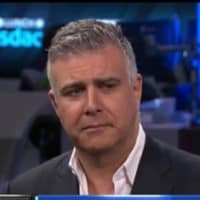Event drew about 40 senior market participants from the sell side, macro hedge funds, systematic funds, commodity trading advisors, and trading firms.
The big picture was in focus at a recent Singapore Exchange (SGX Group) dinner discussion in New York.
The Feb. 22 event included a keynote address and a panel discussion, covering global macro trends, critical market issues, and outlook for the US presidential election in November.
SGX’s Global Head of FX and Rates, KC Lam, was one of the hosts of the roundtable, kicking off the session with a discussion of the exchange’s Asia product suite across equities, currencies and commodities. Amid turbulent interest rates, inflation and geopolitical risks, there has been increased hedging across SGX’s major Asian currency pairs as yield differentials widened. Activity was particularly pronounced for SGX USD/CNH Futures, which has leapfrogged to become the third most-traded listed FX contract globally.
David Woo, CEO of David Woo Unbound, an independent global macro strategy boutique that focuses on the intersection of economics, politics, and geopolitics, presented keynote remarks virtually.
Formerly a Wall Street strategist and International Monetary Fund economist, Woo observed the macro landscape has mostly been two or three good years to one bad year over the course of his 25+ year career, but lately that has been closer to one bad year for every good year. “Macro challenges are becoming more complex,” he said.
Woo relayed an anecdote where a Wharton School professor recently pitted MBA students against ChatGPT in a competition to develop commercially viable products that could be marketed to students for $50 or less. ChatGPT had 35 of the 40 top products as picked by product evaluators.
“Generative AI is huge,” Woo said. “It’s the biggest dollar growth story since US energy independence. It’s very bullish for the US,” he said, noting that 95% of the top AI providers are US-based, as are most early adopters of AI.
With regard to monetary policy and interest rates, Woo said he has been short bonds, but he’s now considering a long position. He cited three reasons for this: recently high levels of government spending are not sustainable; recently low energy prices are reversing course; and the geopolitical risk premium remains elevated.
The US presidential election in November also looms. “The closer the race, the more risk implied for the market and for the economy,” Woo said, adding that he expects a significant slowdown in the third quarter as concerns about political stability come to the fore.
The SGX event drew a good mix of some 40 senior participants from the sell-side, macro-hedge funds, systematic funds, commodity trading advisors as well as trading firms.
Impact of US economy and election risks on the dollar
The keynote was followed by a panel discussion with Thierry Wizman, Managing Director, Global Interest Rates and Currency Strategist at Macquarie Group, and Michael Zolandz, Managing Partner at Dentons Washington DC. Bill Gulya, Head of Americas at SGX Group, framed the discussion weaving together a narrative on global macro and US politics, both of which will have an impact on Asian economies in the years to come.
Zolandz offered an overview on the upcoming US presidential election, which is expected to be a rematch between Democrat Joe Biden and Republican Donald Trump.
He said the Democrats are playing not to lose, which is “fundamentally a bad strategy, but it might be enough” in a race between two candidates with historically low approval ratings.
One demographic that could prove critical in the election are suburban women in key swing states. This core group of likely voters have proven decisive in recent elections, and are a critical demographic that both candidates will seek to influence heading into November.
Zolandz highlighted the four top election issues as the economy and inflation, which is a “tossup variable”; immigration and the border, a still-unsolved problem that favors Republicans; foreign interventions, for which Republicans hold a slight advantage; and the notion that democracy itself is on the ballot, which favors Democrats.
The election “will be closer than people think,” and it may come down to which side has the better ground game, traditionally a Democratic strength but an area that Republicans have recently made ground.
Macquarie’s Wizman cited the important and surprising economic theme of the US economy continuing to outperform Europe and China. “We expected a weaker dollar this year, but that hasn’t happened,” he said. “No data suggests that the US has slowed down versus the rest of the world.”
One prominent factor for the US economy over the past couple quarters has been AI-fueled productivity gains. This productivity is likely to be inflationary in the present as higher output leads people to anticipate price increases, possibly influencing Federal Reserve decision making.
“The Fed may think it doesn’t need to cut that much, so as to not let that belief promulgate in the economy,” Wizman said.





